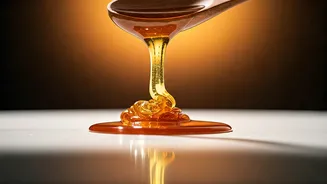Importance of Hair Oils
Hair oils are invaluable elements in hair care practices, functioning as essential components for maintaining scalp and hair health. These oils deliver
crucial nutrients, vitamins, and minerals that nourish the hair follicles, thereby encouraging healthy hair growth. Regular application of hair oils aids in moisturizing the hair, preventing dryness, and reducing breakage. Furthermore, they are effective in safeguarding hair from environmental damage, such as sun exposure and pollution. Employing hair oils can also enhance the overall texture and appearance of the hair, giving it a softer, smoother, and shinier look. Choosing the correct hair oil based on hair type and individual needs is essential for obtaining the best results. Moreover, the practice of oiling the hair has been a long-standing tradition in India, recognized for its effectiveness in promoting strong, healthy hair.
Argan Oil's Magic Touch
Argan oil, derived from the kernels of the argan tree, has gained immense popularity due to its exceptional conditioning properties. Rich in Vitamin E and essential fatty acids, this oil provides deep nourishment to the hair, enhancing its elasticity and reducing the risk of breakage. It works wonders by moisturizing the scalp and reducing dryness, ultimately contributing to healthier hair growth. The antioxidants in argan oil protect the hair from environmental stressors and heat damage, making it a great addition to any hair care routine. Its lightweight texture allows it to be easily absorbed by the hair, leaving it feeling smooth and manageable without any greasy residue. Regularly using argan oil can result in stronger, shinier, and more voluminous hair, making it a popular choice for all hair types. Incorporating it into a regular hair care regimen can lead to noticeably improved hair health and appearance.
Coconut Oil's Excellence
Coconut oil is a staple in many Indian households and is celebrated for its versatility and effectiveness in hair care. It has the ability to penetrate the hair shaft, providing deep hydration from within. Its rich composition includes fatty acids, which help to reduce protein loss, strengthening the hair and reducing breakage. Coconut oil not only moisturizes the scalp, but also helps to combat dandruff and other scalp issues. Regular use can lead to improved hair manageability, reducing frizz and making the hair softer. The application of coconut oil also enhances the shine and natural luster of the hair, giving it a healthy, vibrant appearance. Whether used as a pre-shampoo treatment, a conditioner, or a styling product, coconut oil remains a trusted remedy for achieving long, healthy, and beautiful hair, continuing a long tradition of hair care.
Castor Oil's Power
Castor oil is well-known for its ability to promote hair growth. This oil is abundant in ricinoleic acid, which is believed to improve blood circulation to the scalp, thereby stimulating hair follicles. Castor oil also has moisturizing properties that help to maintain scalp health and prevent dryness. Its rich consistency helps to seal moisture into the hair shaft, reducing breakage and enhancing overall hair health. The use of castor oil is often linked to increased hair thickness and faster growth. Many individuals find that regular application contributes to stronger, fuller hair and even can aid in eyebrow and eyelash growth. While castor oil can be applied directly to the hair and scalp, it is often mixed with lighter oils to decrease its thickness and improve its absorption for a more comfortable application.
Jojoba Oil's Attributes
Jojoba oil is a special oil, that mirrors the natural sebum produced by the scalp, making it an excellent option for all hair types. It offers deep moisturizing capabilities without weighing the hair down, thus controlling oiliness. Jojoba oil assists in dissolving the buildup on the scalp, unclogging hair follicles, and supporting healthy hair growth. This oil is packed with vitamins and minerals, helping to nourish and fortify the hair strands. Using jojoba oil can reduce split ends, enhance hair elasticity, and provide a healthy shine. It's gentle and non-greasy, making it perfect for daily use and it serves as a lightweight conditioner that keeps hair manageable and protects it from damage. Its ability to balance scalp oil production makes it a versatile product for promoting long-term hair health.
Almond Oil's Goodness
Almond oil is a light and easily absorbed oil, rich in Vitamin E, fatty acids, and antioxidants, perfect for moisturizing and strengthening the hair. The nutrients in almond oil nourish the hair follicles, encouraging hair growth and reducing hair fall. It improves the overall health of the scalp by reducing inflammation and supporting a balanced environment, which in turn leads to less dandruff. Applying almond oil can make the hair smoother, softer, and more manageable, helping to decrease tangles and breakage. Regular use of almond oil can improve hair's natural shine and luster, resulting in a more vibrant look. Its gentle nature makes it suitable for all hair types, and it's particularly helpful for those dealing with dry or damaged hair, making almond oil a simple solution for a healthier hair care routine.
Olive Oil's Advantages
Olive oil is rich in monounsaturated fats and antioxidants, which are crucial for hair health, it is a well-known oil that has been used for centuries to nourish and fortify hair. This oil penetrates deeply into the hair shaft, providing intense hydration and improving elasticity, which can help prevent breakage. The antioxidants in olive oil shield the hair from environmental damage and promote a healthy scalp environment, reducing dandruff and supporting hair growth. Olive oil's emollient properties make the hair softer, smoother, and more manageable, with a natural shine. Its ability to strengthen hair strands and reduce split ends is highly valued, making it an ideal treatment for dry and damaged hair. The consistent use of olive oil can result in stronger, healthier, and more vibrant hair, making it a great addition to your hair care regimen.
Tea Tree Oil's Effectiveness
Tea tree oil is recognized for its antimicrobial and anti-inflammatory characteristics, making it perfect for maintaining scalp health. Although it's frequently used in hair care, tea tree oil isn't a base oil; it should always be diluted with a carrier oil like coconut or jojoba oil. Its antifungal qualities help to combat dandruff and other scalp infections, fostering a balanced environment for hair growth. Applying tea tree oil to the scalp can unclog hair follicles and minimize the buildup of dead skin cells, helping the hair grow healthily. It enhances blood circulation to the scalp, thus improving hair strength and decreasing hair fall. Using tea tree oil helps the hair look revitalized, as it enhances shine and provides a refreshing sensation. It's a powerful tool in your hair care routine, promoting a healthy scalp and improving the overall health of your hair.
Rosemary Oil's Benefits
Rosemary oil is known for its ability to encourage hair growth and improve hair thickness, making it a popular option in many hair care routines. This oil boosts blood circulation to the scalp, which stimulates hair follicles and supports hair growth. Regular use of rosemary oil can also help reduce hair loss and minimize premature graying of the hair. Its antioxidant properties assist in shielding the hair from environmental harm. Rosemary oil not only stimulates growth but also adds shine and vitality to the hair, making it more manageable and less prone to breakage. When blended with a carrier oil, such as jojoba or coconut oil, it is a great addition to the hair care routine. Its regular usage can enhance the overall health and appearance of the hair, thereby improving its thickness and length.
Eucalyptus Oil's Attributes
Eucalyptus oil is used in hair care because of its invigorating and stimulating characteristics, especially when it comes to scalp health. This oil boosts blood flow to the scalp, encouraging hair follicles and promoting hair growth. It has antibacterial and anti-inflammatory qualities that can aid in the treatment of dandruff and other scalp issues. Eucalyptus oil helps to clean the scalp by eliminating excess oil and debris, which supports a healthy environment for hair growth. Applying eucalyptus oil to the hair can make it shinier, stronger, and more manageable, and it also aids in the prevention of hair loss. It is recommended to dilute eucalyptus oil with a carrier oil before use, and regular use can lead to visibly healthier and more vibrant hair. The oil’s invigorating scent adds a refreshing element to the hair care experience.












